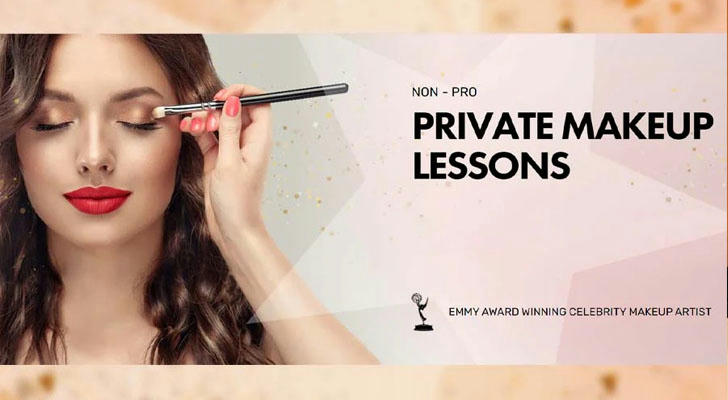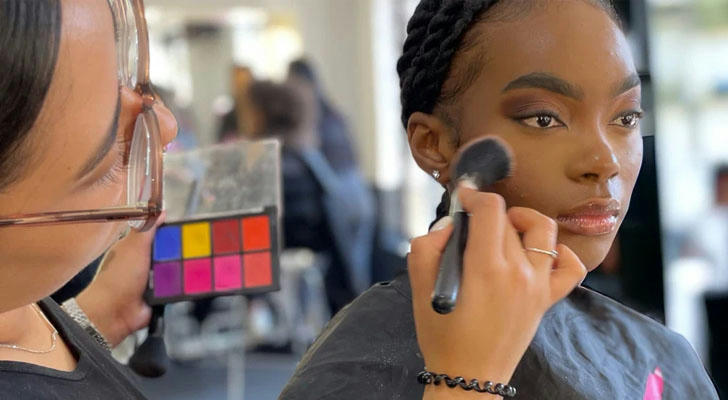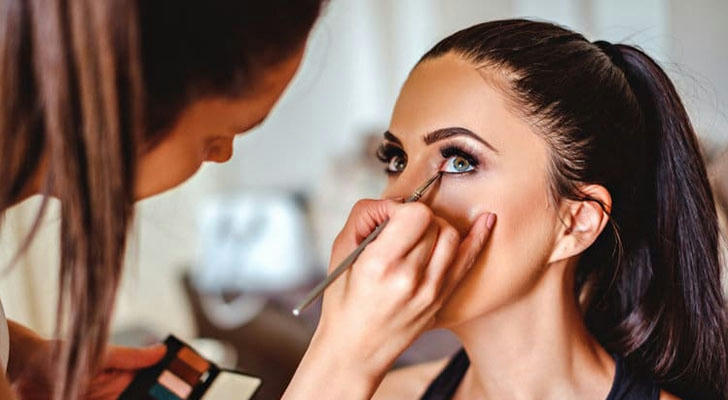The Colorful World of Makeup Classes: Where Art Meets Science
Makeup is more than just a swipe of lipstick or a dab of foundation. It’s an art form, a science, and for many, a passion. Whether you’re a beauty enthusiast, a curious beginner, or someone who just loves to experiment with colors, makeup classes offer a fascinating journey into the world of cosmetics. And no, it’s not just about looking "pretty"—it’s about creativity, self-expression, and even a little bit of chemistry. Let’s dive into the vibrant universe of makeup classes and discover why they’re so much more than meets the eye.
In this article, we will dive deeper into what beauty schools offer, provide real-life success stories, and give you actionable steps to embark on your journey into the beauty industry.

The Palette of Possibilities
Imagine walking into a makeup class. The room is filled with an array of brushes, palettes, and products that look like they belong in an artist’s studio. But instead of canvases, the faces of students (or mannequins) become the masterpieces. Makeup classes are like art classes, but with a twist: the medium is your face. From mastering the perfect winged eyeliner to understanding how to contour like a pro, these classes teach you how to turn your face into a living, breathing work of art.
And it’s not just about following trends. Makeup classes often encourage students to explore their unique style. Want to create a bold, avant-garde look inspired by runway fashion? Go for it. Prefer a natural, "no-makeup" makeup look? That’s just as celebrated. The beauty of makeup is that there are no rules—just endless possibilities.

The Science Behind the Glam
While makeup is undoubtedly artistic, there’s also a surprising amount of science involved. Ever wonder why certain foundations oxidize or why some eyeshadows crease? Makeup classes often delve into the chemistry of cosmetics, teaching students about ingredients, formulations, and how different products interact with skin types. For instance, did you know that silicone-based primers work best with silicone-based foundations? Or that the pH level of your skin can affect how a lipstick color appears? It’s like a mini science lesson, but with glitter.
Skincare is another crucial component of many makeup classes. After all, great makeup starts with great skin. Students learn about the importance of cleansing, moisturizing, and priming, as well as how to address common skin concerns like acne or dryness. It’s a holistic approach that combines beauty and wellness, proving that makeup is more than skin-deep.
A Global Language of Beauty
One of the most exciting aspects of makeup classes is their universal appeal. Beauty standards may vary across cultures, but the love for makeup is a global phenomenon. In South Korea, for example, makeup classes often focus on achieving the coveted "glass skin" look, characterized by dewy, flawless complexions. In India, bridal makeup classes are incredibly popular, teaching intricate techniques like applying bindis and creating dramatic eye looks with kohl. Meanwhile, in the West, classes might emphasize bold, high-fashion looks or the art of contouring.
Social media has also played a huge role in making makeup classes accessible to people worldwide. Platforms like YouTube, Instagram, and TikTok are brimming with tutorials from makeup artists of all backgrounds, offering tips and tricks for free. Want to learn how to recreate a celebrity’s red carpet look? There’s probably a video for that. This democratization of beauty knowledge has made it easier than ever for anyone, anywhere, to learn the art of makeup.

More Than Just Makeup
Beyond the technical skills, makeup classes offer something even more valuable: confidence. There’s something empowering about learning how to enhance your features and express yourself through makeup. For many, it’s a form of self-care—a way to take a little time for themselves and feel good in their own skin. And let’s not forget the social aspect. Makeup classes are often a space for like-minded individuals to connect, share tips, and bond over their love of beauty.
Interestingly, makeup classes aren’t just for individuals. Many professionals, from photographers to theater performers, take these courses to better understand how makeup can enhance their work. Even if you’re not planning to become a makeup artist, the skills you learn can be applied in countless creative fields.
The Future of Makeup Education
As technology advances, so do makeup classes. Virtual reality (VR) and augmented reality (AR) are starting to make their way into beauty education, allowing students to practice techniques in a digital space before trying them in real life. Imagine putting on a VR headset and being able to "paint" a face with virtual brushes and products. It’s like a video game, but for makeup lovers.
Sustainability is also becoming a key focus in the beauty industry, and makeup classes are no exception. Many courses now emphasize eco-friendly practices, such as using cruelty-free products, reducing waste, and learning how to sanitize and reuse tools. It’s a reminder that beauty doesn’t have to come at the expense of the planet.
Final Brushstroke
Makeup classes are more than just a way to learn how to apply eyeliner or blend eyeshadow. They’re a celebration of creativity, a lesson in science, and a gateway to self-expression. Whether you’re taking a class to pursue a career in beauty or simply to have fun, one thing is certain: the world of makeup is as colorful and diverse as the people who love it. So grab a brush, pick up a palette, and let your imagination run wild. After all, in the world of makeup, the only limit is your creativity.
